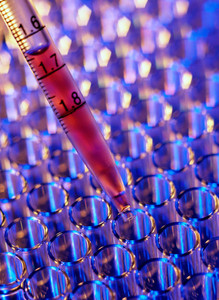How therapeutic monoclonal antibody biosimilars are assessed for biosimilarity, was discussed by authors from the National Institute of Health Sciences and the Yokohama University of Pharmacy in Japan. Their review covers the basic concept of biosimilar development as well as pharmacokinetic data obtained via non-clinical and clinical studies of biosimilar therapeutic antibodies [1].
The concept of biosimilar was established in the early 2000s in the European Union (EU). Currently, the regulatory framework for biosimilar has also been established in the EU, US and Japan, as well as in other countries. Monoclonal antibody (mAb) and Fc-fusion biosimilars for infliximab, adalimumab, rituximab, trastuzumab and bevacizumab have been approved across the EU, US and Japan, but dates of approval can differ significantly [2-4].
The scientific principles for a biosimilar comparability assessment to the reference product are based on those applied for evaluation of the impact of a change in the manufacturing process of a biotechnological product (as outlined in ICH Q5E guideline).
During the development of a biosimilar, product quality should be evaluated and compared with those of the reference product extensively. Among the quality attributes of therapeutic antibodies, neonatal Fc receptor (FcRn) binding and related structures are well known to affect the pharmacokinetic profile of the product. Other quality attributes, such as antigen binding, glycan structure and isoelectric point are considered to have a potential impact on the pharmacokinetic profile of the product.
Based on the high similarity of the quality attributes of the biosimilar to those of its reference product, comparative non-clinical and clinical studies are conducted. Comparable pharmacokinetic profile of the biosimilar and the reference product is important for biosimilar evaluation.
The authors conclude by saying that the ‘development of biosimilar mAbs is expected to decrease the medical expenses and make it easier for patients to access medicines needed for treatment’. They also point to the European Medicines Agency information guides for healthcare professionals [5] and for patients [6] as being important resources, providing ‘reference information on both the science and regulation of the use of biosimilars’.
Finally, the authors say that ‘as future perspective for biosimilars, studies on critical quality attributes and critical clinical attributes related to safety and efficacy of the products are important, which will also be necessary for efficient development of innovative mAbs’.
Conflict of interest
The authors of the research paper [1] declared that there was no conflict of interest. This study was supported in part by the Japan Agency for Medical Research and Development (AMED) under Grant Number JP17mk0101039 and JP18mk0101104.
Related article
Biosimilar comparability assessment
References
1. Ishii-Watabe A, Kuwabara T. Biosimilarity assessment of biosimilar therapeutic monoclonal antibodies. Drug Metab Pharmacokinet. 2019;34(1):64-70.
2. GaBI Online - Generics and Biosimilars Initiative. Biosimilars approved in Europe [www.gabionline.net]. Mol, Belgium: Pro Pharma Communications International; [cited 2020 Apr 24]. Available from: www.gabionline.net/Biosimilars/General/Biosimilars-approved-in-Europe
3. GaBI Online - Generics and Biosimilars Initiative. Biosimilars approved in the US [www.gabionline.net]. Mol, Belgium: Pro Pharma Communications International; [cited 2020 Apr 24]. Available from: www.gabionline.net/Biosimilars/General/Biosimilars-approved-in-the-US
4. GaBI Online - Generics and Biosimilars Initiative. Biosimilars approved in Japan [www.gabionline.net]. Mol, Belgium: Pro Pharma Communications International; [cited 2020 Apr 24]. Available from: www.gabionline.net/Biosimilars/General/Biosimilars-approved-in-Japan
Permission granted to reproduce for personal and non-commercial use only. All other reproduction, copy or reprinting of all or part of any ‘Content’ found on this website is strictly prohibited without the prior consent of the publisher. Contact the publisher to obtain permission before redistributing.
Copyright – Unless otherwise stated all contents of this website are © 2020 Pro Pharma Communications International. All Rights Reserved.








 0
0











Post your comment